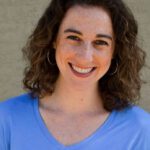The process of defining and redefining both one’s self and one’s community is a core feature of the Jewish experience. Take the strict halakhic interpretation of the “essential” pieces of Jewish identity: that the child of a Jewish mother is a Jew, and that the defining features of Judaism are found as mitzvot in the Torah. As communities have diversified, some have chosen to revisit, question, and modify even these seemingly “core” or “absolute” tenets. As our Jewish world diversifies, so too does the conflict and tension around negotiating our collective Jewish identity. Drawing a boundary can be tricky, exclusive, confusing, or alienating for educators and learners alike, especially in settings that integrate more and more Jewish diversity. It is therefore necessary for educators to navigate that conflict and tension constructively: to consciously and responsibly engage in the very Jewish process of negotiating our individual and collective identities. This pedagogy is meant to clarify and improve the way we engage in that process and, ultimately, to help make Jewish educators more nimble, resilient, effective, and responsive.
Who am I? Who are We? Learning About Jewish Peoplehood by Facing Difference and Fostering Belonging
More PEDAGOGIES RESOURCES
Anava/Humility as a Pedagogy Toward Jewish Peoplehood
Rabbi Aytan Kadden
Teacher and Leadership Team Member
Ort Pelech Boys High School
The pedagogy of humility as taught using chevruta.
Access ResourcePedagogy of Rootedness: Retrieving Rootedness and Building a Sense of Belonging
Dr. Dominika Zakrzewska Oledzka
Program Director
Living Bridge Institute for Intercultural & International Affairs
The pedagogy of rootedness stresses the importance of being aware of one’s heritage to create a sense of belonging and connection.
Access ResourceZakhor: A Pedagogy of Memory
Dr. Samantha Vinokor-Meinrath
Managing Director of Identity, Ideas and Adolescents
The Jewish Education Project
Zakhor is a pedagogy of memory through storytelling and embodied experiences.
Access ResourceThe Pedagogy of Storytelling
Bezawit Abebe
Research Fellow
Be'chol Lashon
The pedagogy of storytelling engages and connects both the storyteller and listener.
Access ResourceKaveh: A Pedagogy of Hope
Rabbi Amitai Fraiman
Director, The Z3 Project
Oshman Family JCC
The pedagogy of hope aims to embody the role of hope in Jewish peoplehood and create a shared consciousness.
Access ResourcePeoplehood Orientation: Nurturing Klal Yisrael Through Torah Study
Laynie Soloman
Associate Rosh Yeshiva & Director of Transformative Leadership
SVARA: A Traditionally Radical Yeshiva
Nurturing Klal Yisrael Through Torah Study
Access Resource